Intrigue aplenty as Tour de France reaches final act in the Pyrenees – Preview
Tricky mountain stages and a tough time trial still to come before Paris
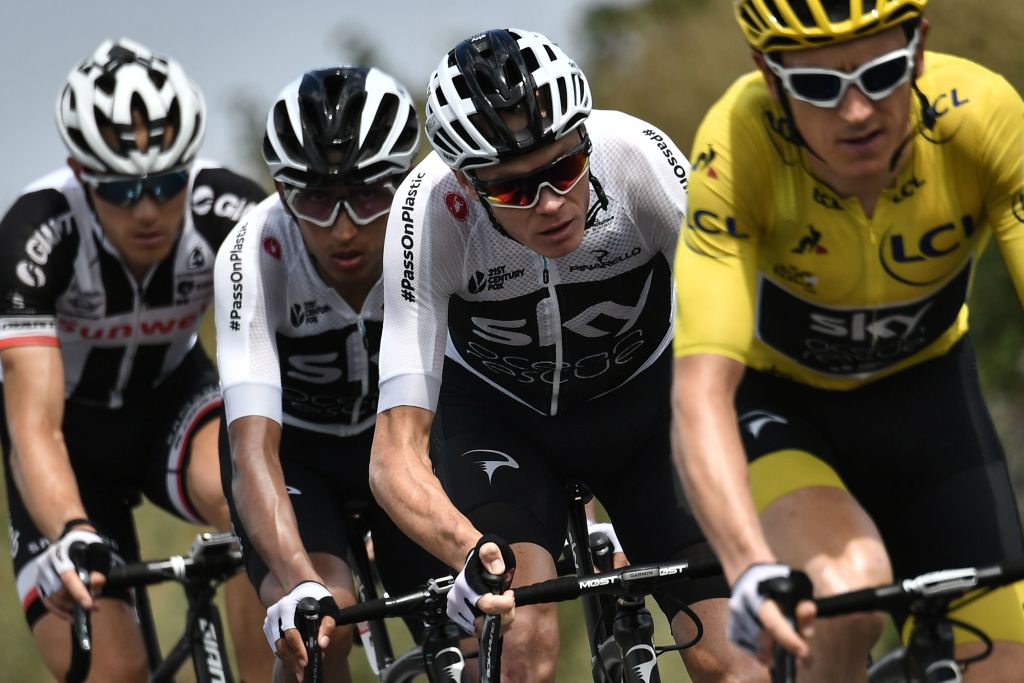
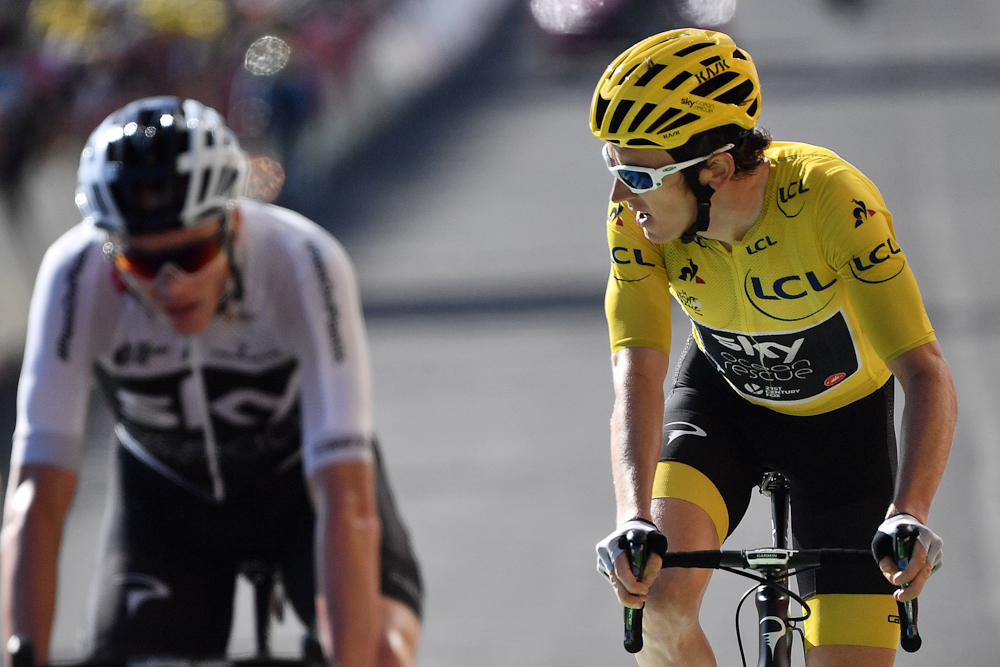
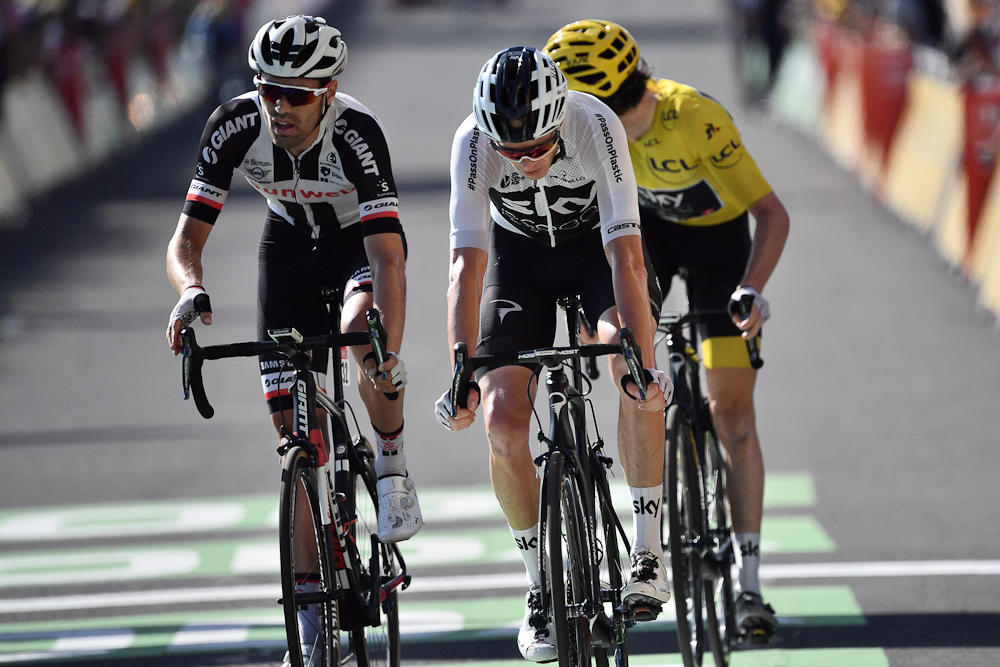
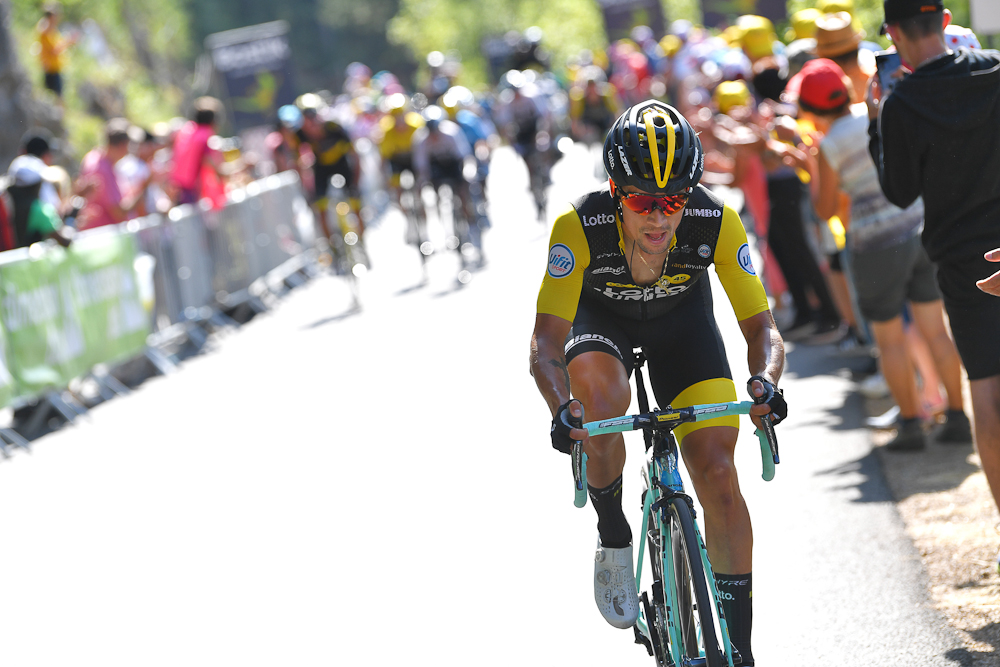
In the middle of it all, a bike race might break out. On and off the road, the 2018 Tour de France has felt dominated by Team Sky, but between the whistles and the jeers – not to mention Gianni Moscon's expulsion and Dave Brailsford's willfully ignorant commentary on French culture – it's easy to overlook that the script from here to Paris is not necessarily a straightforward one.
Gianni Moscon disqualified from Tour de France
Geraint Thomas: I'd rather be winning and getting booed than getting dropped and cheered
Tour de France: Transition stages in review featuring Thomas, Froome, Southam – Podcast
Brailsford blames Tour de France roadside reactions on 'a French cultural thing'
In winning back-to-back mountaintop finishes at La Rosière and Alpe d'Huez – a feat previously achieved only by Fausto Coppi and Joop Zoetemelk – Geraint Thomas has established a lead of 1:39 over his Sky teammate Chris Froome, who appeared stronger than just about everyone else over the course of the passage through the Alps.
In Monday in Carcassonne, Froome presented a united front as he sat beside Thomas, though when he said, "As long as a Sky rider wins the Tour de France, I'm happy," one imagines that the Sky rider he had in mind was himself.
After winning the Giro d'Italia with an improbable comeback in the final week and then claiming victory in his salbutamol case after his legal team persuaded the UCI to drop its anti-doping proceedings against him a week before the Tour, Froome will not hand over the reins lightly.
On the face of it, the winner of Sky's implicit leadership contest might seem destined to claim the team's sixth Tour victory in seven years, but with Tom Dumoulin (Sunweb) still only 11 seconds behind Froome, the race is not (yet) a straightforward internecine struggle in the manner of Hinault and LeMond in 1985 and 1986, or, for that matter, Wiggins and Froome in 2012.
Primoz Roglic (LottoNL-Jumbo), meanwhile, is 2:38 off Thomas in 4th, but his searing attack on the so-called Montée Laurent Jalabert in Mende on Saturday will not have gone unnoticed, and he has teammate Steven Kruijswijk (7th at 3:57) to serve as a foil. The enigmatic Roglic has been turning heads since he made the surprising transition from ski jumping to the WorldTour in 2016, with UAE Team Emirates directeur sportif Joxen Fernandez Matxin affirming to Marca at the weekend, "Roglic will win the Tour."
The rest of the top 10 is filled with riders who have been in the mix before and so men like Romain Bardet (5th at 3:21), Mikel Landa (6th at 3:42) and Nairo Quintana (8th at 4:23) are perhaps minded to take risks to re-enter the podium race rather than ride cautiously to preserve their places of honour. Or as Dan Martin (10th at 6:54) put it: "They're not going to ride around to be 6th or 8th on GC, guys like Romain and Nairo."
Get The Leadout Newsletter
The latest race content, interviews, features, reviews and expert buying guides, direct to your inbox!
AG2R La Mondiale directeur sportif Julien Jurdie maintains that Bardet's cause is not lost, given that Thomas is still unproven in this situation – his best Tour finish is 15th – and Froome should – at least in theory – show signs of fatigue after his exertions at the Giro in May.
Sunweb directeur sporitif Luke Roberts acknowledged that the final third of the race would also be the ultimate test for Dumoulin, who thus far has shown no residual fatigue from his second place at the corsa rosa. "If the Giro has taken its toll, we'll find that out in the last week," Roberts said.
After Monday's rest day in Carcassonne, the Tour reaches its endgame in the Pyrenees, with three mountain stages in four days, followed by the hilly and potentially pivotal 31km in the Basque Country on Saturday afternoon. The Tour's third week tends to be more controlled and cautious than the anarchy of the Giro d'Italia, but the terrain is tough enough to alter the complexion of the race dramatically.
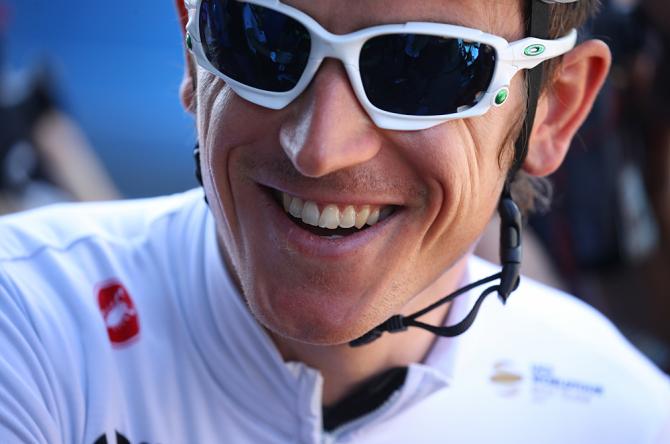
In the wheel tracks of Ocaña
The Tour enters the Pyrenees on Tuesday with a 218km trek from Carcassonne to Luchon that follows loosely in the wheel tracks of one of the most discussed stages in Tour history, the 1971 leg from Revel to Luchon that saw yellow jersey Luis Ocaña – untouchable in the Alps – crash out of the race on the rain-lashed descent of the Col de Menté.
The opening two-thirds of stage 16 are relatively gentle, with only the category 4 Côte de Fanjeaux and Côte de Pamiers as obstacles, but the final 80km is a mirror of that Dantesque afternoon 47 years ago, with the Col de Portet-d'Aspet, Col de Menté and Col du Portillon featuring ahead of the rapid drop to the line.
The category 2 Portet-d'Aspet (5.4km at 7.1%) is the most straightforward of that trio, but after descending past the memorial to Fabio Casartelli, who died when he crashed there on the 1995 Tour, the peloton begins climbing almost immediately as the category 1 Col de Menté (6.9km at 7.1%) rears into view.
While the lengthy valley road that follows the descent of the Menté might prove sufficient to discourage long-range aggression, the final haul up the Col du Portillon is a perfectly-positioned springboard for late attackers. The race briefly veers into Spain to tackle the category 1 ascent (8.3km at 7.1%) before crossing the border again at the summit for the white-knuckle, 10km descent to the finish in Bagnères-de-Luchon.
"We expect a lot of attacks from the start, but it's a big, big day, and one of the hardest climbs is the final climb," Thomas said on Monday. "It finishes at altitude, and it's a long day, so you can't get too carried away at the start, that's for sure. But I'm sure it'll be exciting to watch."
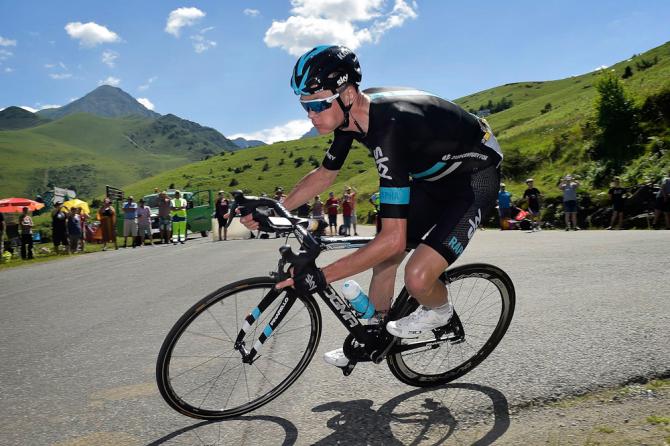
Grid
If Tuesday is primarily about the sting in the tail, then stage 17 from Bagnères-de-Luchon to Saint-Lary-Soulan promises fireworks from the outset. Indeed, as the stage just 65km in length, the organisation will take the novel step of arranging the peloton on a grid at the start, with the best-placed riders on GC positioned at the head of the race.
Three mountain passes are shoehorned into the short stage, and the climbing begins from the gun with the exacting Montée de Peyragudes (category 1), which brings the race up the Col de Peyresourde and drags on for 14.9km at 6.7%. Next up is the category 1 Col de Val Louron-Azet (7.4km at 8.3%), where Miguel Indurain claimed his first yellow jersey on the 1991 Tour, while the third climb of the day takes in the Col du Portet (16km at 8.7%) en route to an hors categorie finish at Saint-Lary Soulan.
With 38.3km of climbing and 3,126 metres of total climbing, the short stage is among the most novel ever proposed by the Tour. Stephen Roche won a 52km split stage to the Col d'Aubisque in 1985. In 1972, the Tour included a 28km stage (21km of which were up) from Aix-les-Bains to Le Revard, where Cyrille Guimard out-sprinted Eddy Merckx to take stage honours, but if that leg amounted to a massed start hill climb, this vicious offering might prove to be something of a miniature epic.
It remains to be seen, however, if the stage proves as explosive as first advertised. The climb to Saint-Lary-Soulan is the highest point of the Tour, at an altitude of 2,215 metres, and boasts long stretches of 10% gradients at its base and again in the final kilometre. Despite the brevity of the stage, many riders might adopt a cautious tack with the remorseless denouement.
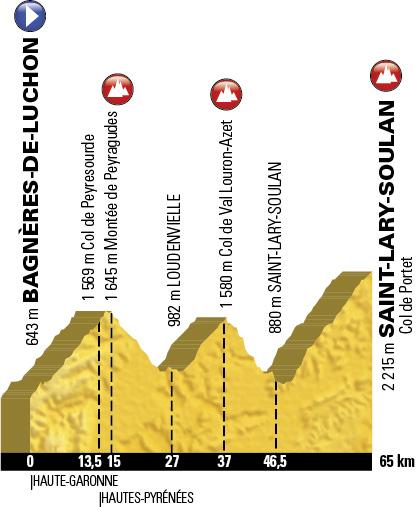
The final furlong
There is a day of respite on stage 18 with a flat leg to Pau, a development that runs counter to the old truism that three consecutive days in the high mountains are required to provoke real separation of the general classification contenders. As if to compensate, stage 19 features three of the big beasts of the Pyrenees over its 200km – the Col d'Aspin, Col du Tourmalet and Col d'Aubisque – before the drop to the finish in Laruns.
On the penultimate day, meanwhile, comes the lone individual time trial of this Tour. The 31km test from Saint-Pée-sur-Nivelle to Espelette takes in a hilly, sinuous parcours that includes the short and stiff climb of Pinodieta (900 metres at 10.2%). There are the faintest hints of the tough Bergen Worlds route about the parcours. And the top three in Norway, lest it be forgotten, were Dumoulin, Roglic and Froome.
A rather more straightforward examination in Marseille a year ago forced some substantial differences at the top of the overall standings, and any weakness will be punished at least as mercilessly here. Small wonder that Froome has acknowledged that his current 11-second buffer over Dumoulin would not be sufficient come next weekend – nor, of course, will his current deficit to his teammate Thomas.

Barry Ryan was Head of Features at Cyclingnews. He has covered professional cycling since 2010, reporting from the Tour de France, Giro d’Italia and events from Argentina to Japan. His writing has appeared in The Independent, Procycling and Cycling Plus. He is the author of The Ascent: Sean Kelly, Stephen Roche and the Rise of Irish Cycling’s Golden Generation, published by Gill Books.